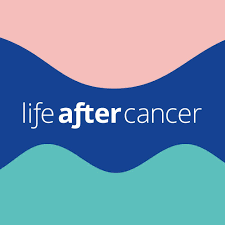Enhancing the quality of life for cancer survivors through comprehensive support and empowerment.
Goals and Strategies
- Establish a Support Network
- Support Groups: Facilitate regular meetings for survivors to share experiences and coping strategies. We aim to create a safe space where survivors can connect and find emotional support.
- Peer Mentorship: Train survivors to become mentors for newly diagnosed individuals, fostering a sense of community and hope.
- Enhance Access to Healthcare
- Follow-Up Clinics: Partner with local healthcare providers to establish regular follow-up clinics focused on survivorship care, including physical exams and psychological assessments.
- Telehealth Services: Implement telehealth options for survivors in remote areas, ensuring they have access to healthcare professionals for ongoing support.
- Offer Psychosocial Support
- Counseling Services: Provide access to trained counselors who can address emotional and mental health needs. We need funding for professional services.
- Workshops on Coping Strategies: Organize workshops focused on stress management, mindfulness, and resilience-building techniques.
- Promote Healthy Living
- Nutrition Programs: Develop nutrition workshops that teach survivors about healthy eating habits and meal planning. We need partnerships with nutritionists and local food producers.
- Fitness Initiatives: Create exercise programs tailored for survivors, including group classes and walking clubs to encourage physical activity.
- Economic Empowerment
- Skills Training: Collaborate with vocational training centers to offer job skills workshops, helping survivors to rebuild their careers. Funding for materials and trainers will be essential.
- Microfinance Support: Establish a microfinance initiative to provide small loans for survivors interested in starting their own businesses.
- Community Awareness and Advocacy
- Awareness Campaigns: Launch campaigns to educate the community about cancer survivorship, reducing stigma, and promoting understanding.
- Policy Advocacy: Engage with policymakers to push for improved cancer care services and survivor support at the national level.
What We Need
- Funding and Resources:
- Financial support to cover program costs, workshops, and materials.
- Partnerships with local health organizations, NGOs, and businesses.
- Volunteers and Expertise:
- Volunteers to help organize events and facilitate support groups.
- Professionals (nutritionists, psychologists, trainers) willing to contribute their expertise.
- Community Engagement:
- Active participation from local communities to create a supportive environment.
- Awareness from the public to reduce stigma surrounding cancer survivors.
Expected Outcomes
- Improved Quality of Life: Enhanced physical, emotional, and social well-being for survivors, leading to a more fulfilling life post-cancer.
- Stronger Community Ties: Increased awareness and understanding of cancer survivorship within communities, reducing stigma and fostering support.
- Empowered Survivors: Greater economic independence and improved self-esteem among survivors as they reintegrate into society.
By implementing these strategies and securing the necessary resources, the Pacer Cancer Support Group aims to create a holistic support system that significantly improves the lives of cancer survivors in Uganda.
